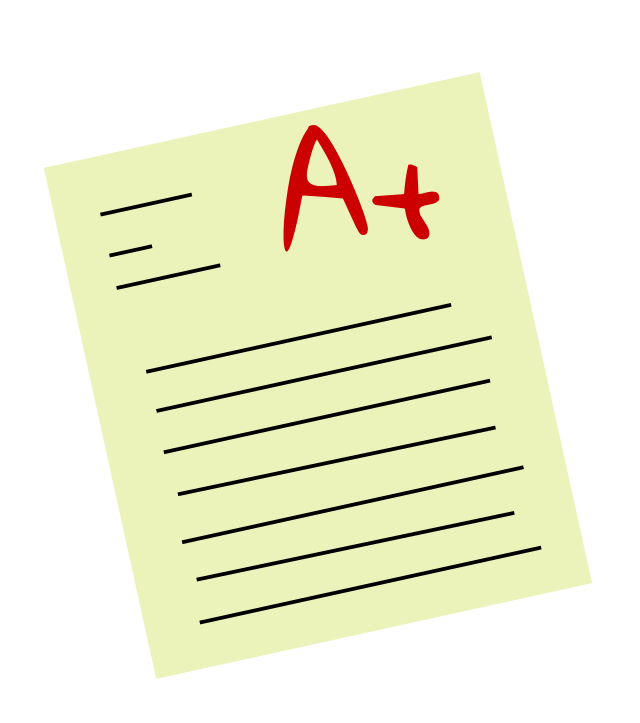
May, 2023
By Lizeth Moctezuma, Editor-in-Chief
As seniors countdown the days until graduation, in these final moments we can’t help but think of our Collegiate years and the parts we wish we could do over. Holding on to the advice we would’ve liked to have known sooner, before the Class of 2023 graduates— these are collections of words we needed to hear from seniors to freshmen.
DISCLAIMER: Take our suggestions with a grain of salt: these are feelings, not facts. Every person is different!
Dear Underclassmen… (Our Do’s and Don’ts)
To the incoming high schoolers, while gaining more freedom (at least compared to our time at any KIPP middle school), this can work in your favor or against you. To preface: your first and maybe second years are by far the easiest, at least academically. Therefore, below-average grades are improvements waiting to happen— so don’t slack off.
Grades Actually Hold Worth (Crazy Concept!)
While transitioning into high school, you may not care now if you’re barely scraping a passing grade, but tons of seniors wish they took these seemingly insignificant scores more seriously. Whether or not you know you’re pursuing a degree post-high school, if there’s even the slightest chance college might be on your mind, get that GPA up!! You’ll regret those low grades when it’s scholarship season, knowing you could have done better when forced to figure out how to pay for your college tuition. One of the pros of KIPP is how they hold your hand— they don’t want you to fail, but you have to at least put minimal effort into trying not to (through Edgenuity or other graduation plans). And learn to ask for help! It’s a valued skill in life, so don’t be scared of needing support or an extension.

It seems repetitive, but having a good foundation in your underclassmen years lets you focus more on college applications. Then, you only have to worry about maintaining your grades instead of working extra your senior year to raise the ones from freshman year. The best way to go about high school is to set yourself up so that you have to work less as the years go.
Behavior-Wise, It’s Not Worth Talking Back
And while certain classes can feel annoying— honestly, bite your tongue. Teachers don’t want to deal with a kid who only ever argues, wasting time for both of y’all. You don’t win anything except for getting in trouble. And instead of spending time with your friends, you end up bored in ISS, meetings, and detention. Try to be smarter about school by seeing what it offers and what does work for you.
Good-To-Know Info:
- Being a sports manager counts as an athletics/ PE credit (only 1 is required, but it’s easy/ convenient to finish, although priority spots are given to upperclassmen so they graduate on time)
- A Fine Arts credit (also necessary) is much more flexible, ranging from art, music classes, dance, etc.
- End-of-year AP tests count for college credit, meaning you can knock out required university classes and save money before you’ve even attended!
- Dual Credit = Another way to get ahead on college/ high school credits
- Staying in one elective class builds pathways, but feel free to explore any interesting ones!! Don’t limit yourself!
- Talk to people. You’re stuck with each other for another year or two: no harm in striking conversation 🙂
- Make connections with teachers so they get to know you when asking for letters of recommendation for clubs/ college
As for 2023’s underclassmen years, we had much less opportunity for involvement— so don’t take it for granted! Join a club, sport, etc. There’s nothing to lose, even if you stick to a hobby outside of school; now’s the time to explore pathways and what interests you. These first two years are a test of investment of your time: it’s up to you to decide how you spend it.
Officially an Upperclassmen AKA All About Focusing
With a year left until graduation, junior year opens up many opportunities, like honor societies, summer programs, or even just being able to work. But this is also the year of standardized testing.
ACT is Mandatory (No Matter What)
As annoying as it is, it’s a KIPP expectation. Though for 2023, the pandemic interfered with our high school education, allowing us to go test-optional for university applications (didn’t have to share our scores). It’s still too soon to say if schools will revert to pre-pandemic standards, but a high score lets you stand out as an applicant, though it’s not the only way.
It’s up to you when or how you study on your own time, but for Junior Seminar, the rule is you will incorporate class time to have some preparation for the ACT. Don’t worry if you didn’t do as well as you wanted; there are multiple attempts later to improve (KIPP covers costs for retakes). And no matter how tedious, going letter of the day is better than nothing!
Junior Seminar: Yes, it Matters
How you treat this class is a massive regret on behalf of most Seniors. Unlike other schools with one counselor for a grade level 3 times the size of ours, they typically don’t have a class solely for resume building, FAFSA/ TASFA and essay help, or other post-high school prep: whereas we have two. Misusing your time, you’re essentially losing out on free resources and help other students don’t have and what your future self will wish you didn’t waste so easily. Whether you want to attend a university after Collegiate— either way, you need a plan.
If you know college isn’t for you, look for what you want to do instead. Technical school, straight into the workforce, or joining any army branch still requires applying to some extent. With only a year left in high school, you need to figure out what you want your new stability to look like, breaking down the costs and how you’ll get there. Dedicate this year to researching or discovering a passion/career you can realistically see yourself in.
Handling Essay A
To those aiming for a degree— get started early!! Your Essay A is the base for your college applications, and while there is no key to writing a perfect personal statement, what universities want to hear about is you. So if you veer to a different person or topic, remember to center back on yourself. This is where schools want to hear about your growth. Who were you before, who are you now, and what kind of person will you be at their institution? Even getting some words on the paper is better than nothing.
Everything after that is feedback after feedback. Having other eyes looking at your essay gives perspective, like, maybe you missed something or have space to improve: trust people who will be honest but care about your future too.
For essays, the go-to advice is to finish writing, then leave it alone (even if it’s just for a day or two). Come back to it with fresh eyes to decide if that’s the best version. Senior year you’ll be set by having the most revised version the summer beforehand. Do not doubt it; a lot can change in a couple of months, so look at it once more!!
College Research
When picking universities to apply to, it’s good to have a variety of schools, especially safeties. Financial aid is ultimately the deciding factor for most seniors, so look into schools that meet student needs while offering the department/ major you’re interested in, even if they seem far out of reach.
Now’s the perfect time to decide what you want from your college experience! Weather, campus/ school size, greek life, D1 sports, close faculty, study abroad, and internship programs— these factors are what universities want to hear about when you apply. “Why my school?” is the question you will see countlessly during applications (especially from out-of-state private colleges). While difficult to answer, it allows the student to measure the worth of applying to these universities, whether that be finding a professor or class with interest, name-dropping a program or lab aligning with your passions, or anything in between is where the real heart of most applications comes from.
Clean Resume
If your resume is over 1 page, it’s pushing its worth in reading. If you’re an overachiever, prioritize the extracurriculars that align with your passions the most. And when summarizing your resume, describe using action words to make your vocabulary sound smarter. Take SNHS as an example:
- Decorate hallways
- Fundraise
- Volunteer for service hours
VS
– Spread awareness of STEM throughout the school via student-led events, service projects, and fundraisers (Same space but said more!)

Application Tips:
- Take the time to join seminars of the school’s you’re interested in to learn more about how to get their admissions office’s attention AKA what exactly do they want in an applicant?
- Grammarly and Quillbot are your best friends: both help your writing sound stronger
- If you pick up a job, get one with good benefits as a part-timer. Don’t overwork yourself if the pay isn’t worth the effort!! Always be on the lookout for better opportunities.
- Try reading your essays out loud if you think it’s over/ under a word limit (helps you audibly hear sections missing details or one’s you can skip)
- Don’t be afraid to look into your own opportunities! The world is not limited to the walls of junior seminar, if you’re passionate about an interest, look for programs or other ways to get involved. Your counselors will be more than happy to help if you ever need support 🙂
Freshman to junior year feels like ages away, but it can go by in a flash before you know it, so take it from us seniors one week away from graduation— prioritize yourself and your time above all!!